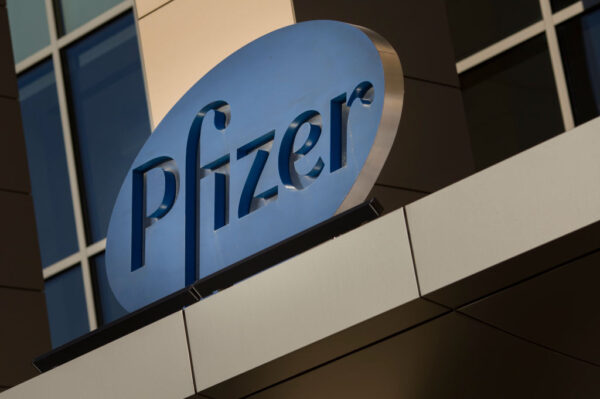
Ulcerative colitis has several available treatments, including one from Pfizer. FDA approval of a new drug gives Pfizer an opportunity to expand its reach in this market with a molecule whose blockbuster potential could justify the premium price the pharmaceutical giant paid to get it.
The Friday approval of the drug, etrasimod, covers the treatment of moderately to severely active ulcerative colitis in adults. The once-daily pill will be marketed as Velsipity.

Using Informed Awareness to Transform Care Coordination and Improve the Clinical and Patient Experience
This eBook, in collaboration with Care Logistics, details how hospitals and health systems can facilitate more effective decision-making by operationalizing elevated awareness.
Ulcerative colitis, or UC, is a chronic inflammatory bowel disease driven by an excessive immune response. It’s estimated to affect about 1.25 million people in the U.S. Velsipity is intended to reduce blood levels of lymphocytes, inflammatory immune cells associated with the development of UC. The Pfizer drug is a small molecule designed to selectively target and block three specific spingosine 1-phosphate receptors. Doing so blocks lymphocytes from leaving lymphoid organs, which in turn reduces lymphocyte levels in the blood.
Pfizer is already represented in the UC market by Xeljanz, a small molecule whose approved uses span several immunology and inflammation indications. The drug accounted for nearly $1.8 billion in revenue last year, but that sum was down 24% as prescriptions shift to other products. Xeljanz belongs to a class of drugs that block inflammation-driving proteins called Janus kinases, or JAKs. But JAK inhibitors have fallen under greater scrutiny for serious and potentially fatal cancer and cardiovascular complication risks, which are flagged inside black box warnings on the labels of all drugs in the class.
Velsipity offers patients a less risky option. The FDA based its approval decision on the results of two Phase 3 studies enrolling patients who could not take or did not respond to currently available UC therapies. The studies met the main goal of achieving clinical remission and secondary goals of showing improvement observed by endoscopy as well as healing of the colon’s mucosa, which becomes inflamed from the disease. The most common adverse events reported in the trials included headaches, elevated liver enzymes, dizziness, and hypertension.
Other UC therapies available include corticosteroids and biologic drugs, such as Humira and the coming biosimilars for that AbbVie product. As an oral pill, Pfizer’s new UC medication has a dosing edge over those injectable therapies.

At ViVE 2024, Panelists Share Prior Authorization Progress and Frustration in Payer Insights Program
At the Payer Insights sessions on Day 1 of ViVE 2024, a panel on prior authorization offered compelling insights from speakers who shared the positive developments in this area after years of mounting frustration. Speakers also shared challenges as they work with providers to figure out how policy developments and technology will work in practice.
“Because of the unpredictable nature of UC, people living with the disease can cycle through several different treatments over time,” Michael Chiorean, co-director of the IBD Center at Swedish Medical Center and an investigator in the drug’s clinical trials, said in a prepared statement. “Patients may also be apprehensive about using injectable therapies, like biologics. It’s important to have new, effective options like Velsipity for those patients who may require an advanced treatment option and prefer the convenience of a once-daily pill.”
The new Pfizer drug’s most direct competition will be Zeposia, a Bristol Myers Squibb pill that is also an S1P modulator. Zeposia was first approved as a treatment for multiple sclerosis. But this drug requires titration, a slow increase in dosing over time to find the right dose for a patient. By contrast, Velsipity’s approval specifically covers a 2 mg dose. In a note sent to investors Friday, Leerink Partners analyst David Risinger noted that both the BMS and Pfizer products have warnings about the risk of decreased heart rate from the therapies. But he added that approval of Velsipity without a titration requirement is a positive for the Pfizer drug.
Velsipity was initially developed by Arena Pharmaceuticals, which Pfizer acquired two years ago in a $6.7 billion deal. Pfizer expects Velsipity will become available in late November. The company has set a wholesale price of $6,164 for a 30-day supply, which falls just shy of $75,000 a year. That price, before any rebates or discounts, is comparable to other UC drugs on the market.
Pfizer projects Velsipity will become a blockbuster seller. The company has set a goal of achieving $25 billion in new revenue by 2030 from products acquired in business deals. Besides Velsipity, other products expected to contribute to this goal include Oxbryta, the sickle cell disease drug from the acquisition of Global Blood Therapeutics, as well as Zavzpret and Nurtec, two migraine drugs from the Biohaven Pharmaceuticals acquisition.
Velsipity also has potential applications in other inflammation-driven immune system disorders, including Crohn’s disease, atopic dermatitis, eosinophilic esophagitis, and alopecia areata. Pfizer already has alopecia covered with Litfulo, a drug that won FDA approval in June for treating alopecia in adults and adolescents. Marketing applications for Velsipity as a UC treatment are currently under review around the world. The next regulatory action could come from the European Medicines Agency, which is expected to issue a decision in early 2024.
Photo: Dominick Reuter/AFP, via Getty Images












